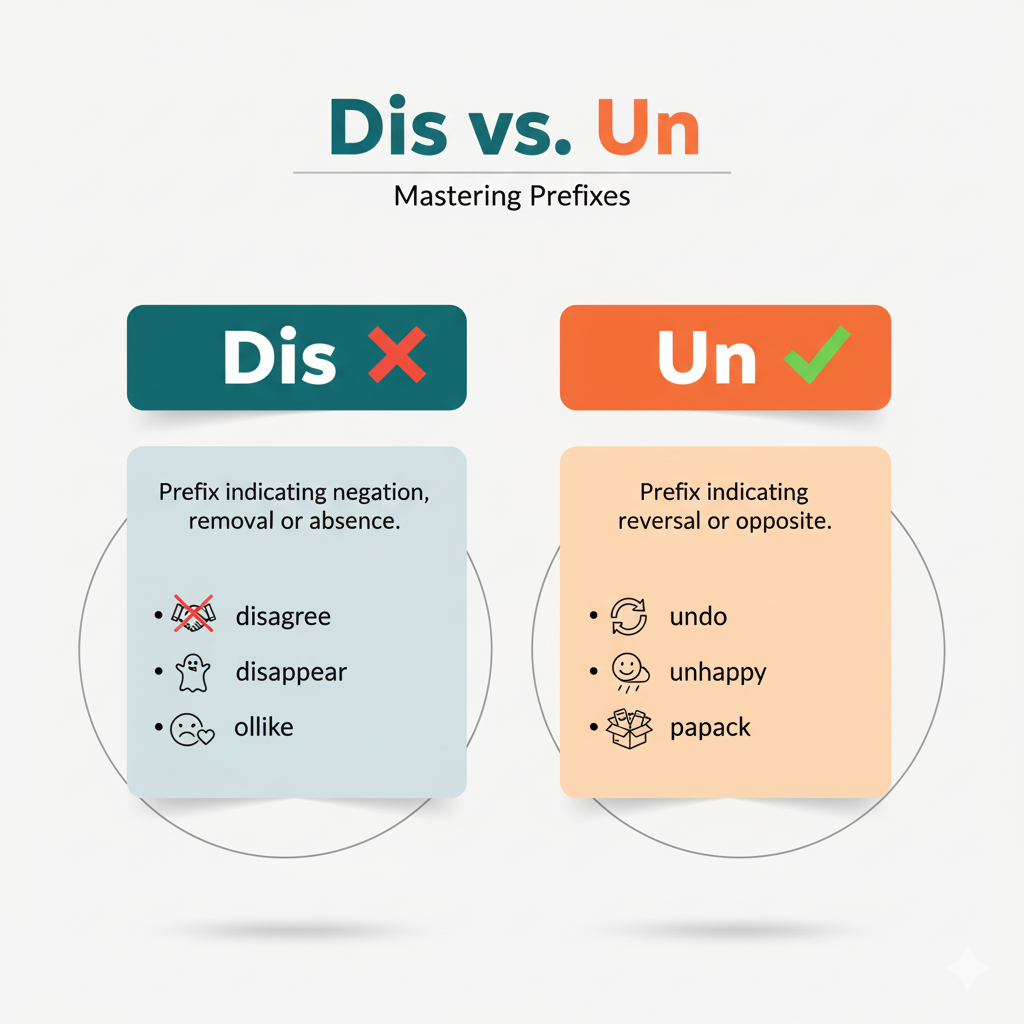How to Tell When to Use “Dis” or “Un” in English Words

Ever get confused about when to use “dis” and when to use “un” at the start of a word?
Don’t worry — Midoo AI is here to help you master these two prefixes so you can write clearly and confidently.
They may look similar, but they don’t always work the same way.
The Prefix “Un” — Meaning “Not”
Definition:
“Un” is used to show the opposite meaning of an adjective or verb.
It usually means “not” or “the reverse of.”
Examples:
- Unhappy → not happy
- Unfair → not fair
- Unclear → not clear
- Unplug → remove from the plug
- Untie → to reverse tying
Tip:
Use “un” when you want to show the opposite of a normal state (especially with adjectives).
The Prefix “Dis” — Meaning “Opposite” or “Reverse”
Definition:
“Dis” is used to show opposite action, reverse, or negative force.
It’s often used with verbs and nouns.
Examples:
- Disagree → to not agree
- Dislike → to not like
- Disconnect → to cut off a connection
- Disapprove → to not approve
- Disappear → to go away
Tip:
Use “dis” when you want to show something is removed, reversed, or against an action.
Quick Trick to Remember
- “Un” = not → makes the word mean the opposite state
- “Dis” = opposite / reverse → cancels or stops the action
Example sentence:
- She was unhappy with the messy room, so she disconnected the Wi-Fi to make everyone focus on cleaning.
Common Words You Should Know
| With un- | With dis- |
|---|---|
| unfair | disagree |
| unsafe | disconnect |
| unsure | disapprove |
| unlucky | disappear |
| unkind | dislike |
FAQS
Q: Can I use “dis” and “un” with any word?
A: No. Not every word accepts these prefixes. Some words just don’t work with them (for example, you say “incorrect” not “unright”).
Q: Is “dis” more negative than “un”?
A: Often yes. “Un” just means “not,” while “dis” can show stronger opposition or removal.
Q: Are there exceptions?
A: Yes — English has many irregular words. When unsure, check a dictionary or Midoo AI to confirm.
Final Tip from Midoo AI
Think of “un” as gently flipping something to its opposite (happy → unhappy),
and “dis” as actively pushing it away or breaking it apart (agree → disagree).
Keep this simple idea in mind, and you’ll choose the right prefix every time! ✨